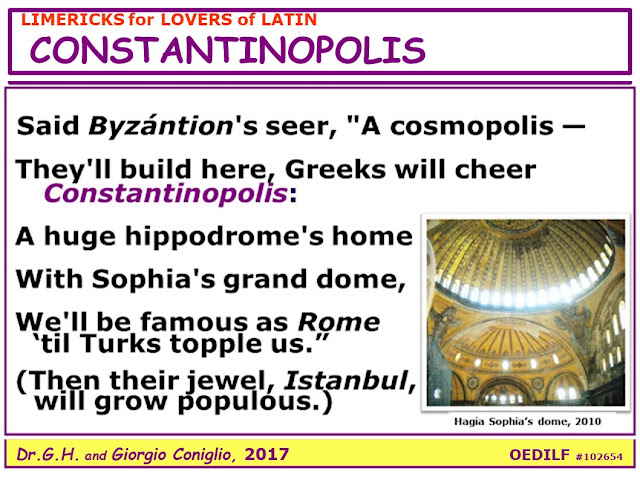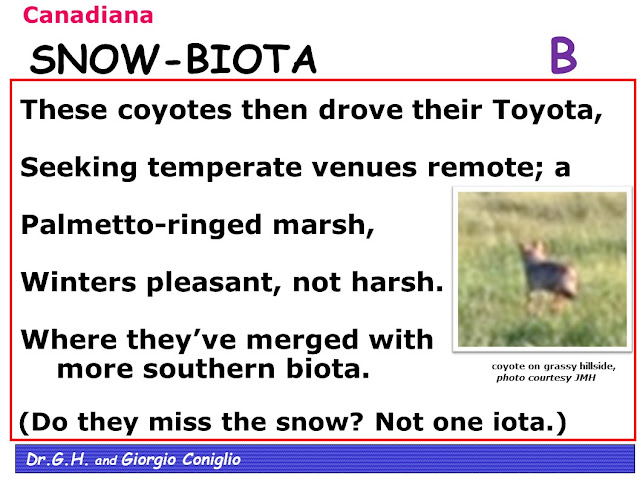a) Reprise of material posted on March 7 in previous years ...
2020: Charleston garden, creeping fig saga (illustrated poem)
2021: classic palindrome, sex of foxes (poem)
2022: California excursions, Oakland (illustrated poem)
2023: lexicon of word-pairs, alliterative binomials L (wordplay)
To access the details of any item in slide format, type its title, as displayed above in red font (e.g. ... Sorry!), into one of the two search bars at the the top of your blog-page. Underneath the slide(s) for each entertaining delight that you discover, you will find a clickable link that lets you easily explore a more widespread collection of wonderments (verse, photos, wordplay, song-lyrics etc.) on the topic of your choice.
Authors' Note: Our seer in Byzántion likely made his prediction in the early 4th century A.D.
Byzántion: Greek name for the Greek colonial city-state founded on the Bosporus in pre-Roman times; known in Latin as Byzantium, it lent its name to the subsequent Byzantine Empire
Konstantinoúpolis, and Constantinopolis: Greek and Latin names respectively for the expanded city, planned as his empire's eastern capital (Nova Roma) by Roman emperor Constantine; known in English as Constantinople
Hagia Sophia (ah-yah so-FEE-ah) Greek for Holy Wisdom; famed for its huge dome, the third iconic church built on the site served as an Eastern Orthodox cathedral from 537 A.D. until 1453, the year of conquest by the Ottoman Turks
Istanbul: capital of the Ottoman Empire, and subsequently of modern Turkey, the city's current population of 15 million (2017) makes it Europe's most populous city.
To review all of our output on the topic of classic languages, go to our encyclopedic compendium, "Edifying Nonsense"; click HERE !
to review nonsense from any other date: scroll over to the calendar-based listings of 'Past Posts' in the righthand column on this page, and select (by clicking) the month of your choice from 2020 or 2021.


















BequeathCjpeg.jpg)






































